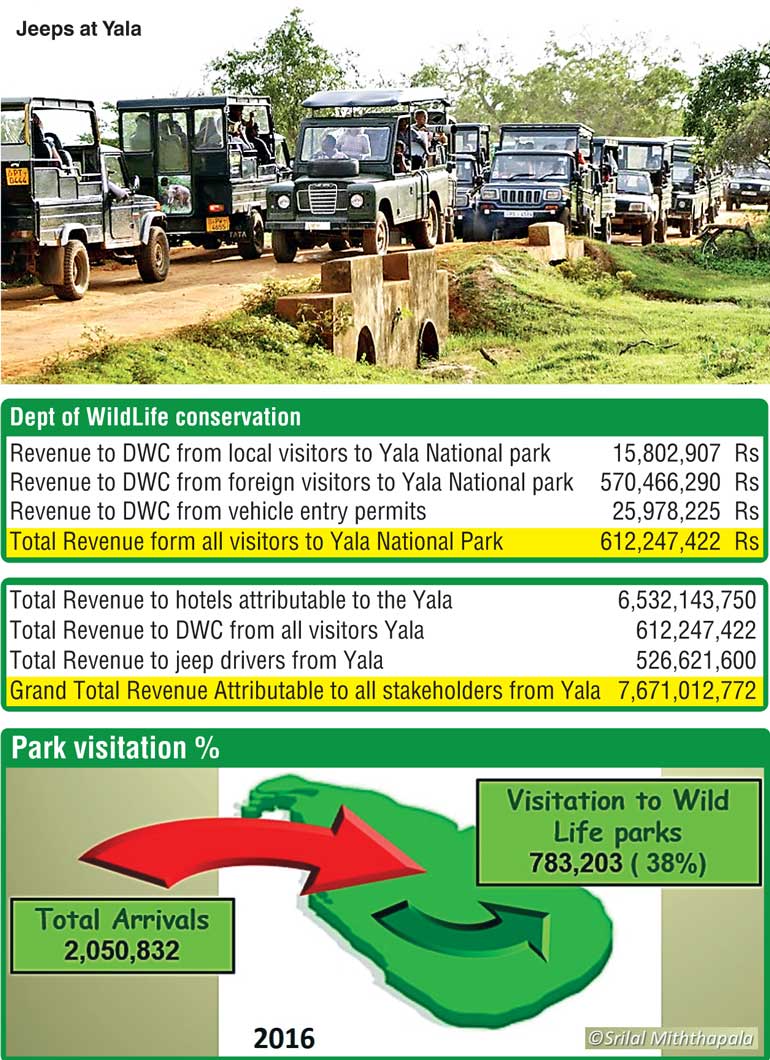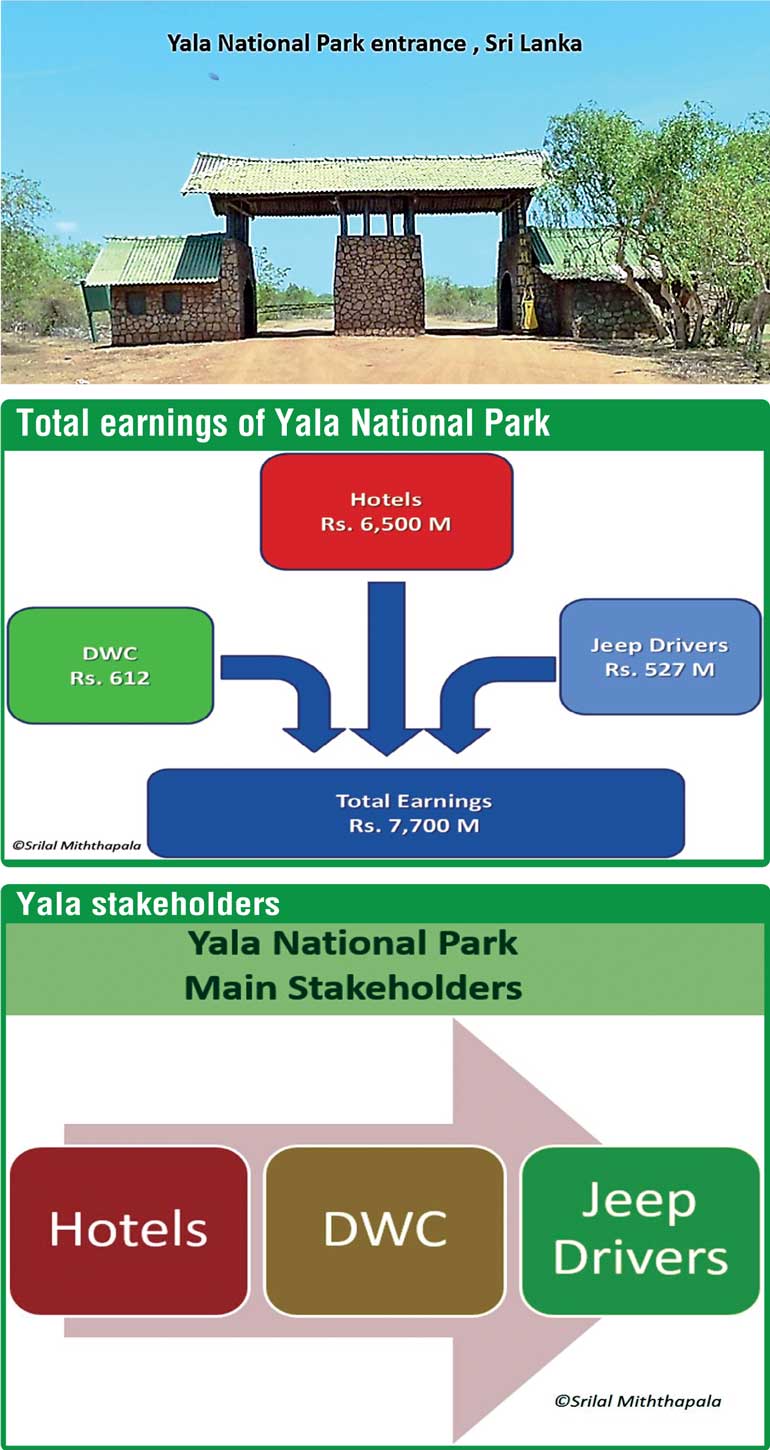Saturday Feb 21, 2026
Saturday Feb 21, 2026
Friday, 7 July 2017 00:00 - - {{hitsCtrl.values.hits}}

Yala is the most popular National Wildlife Park in Sri Lanka. There is no doubt about that. It earns more than Rs. 600 m each year from ticket sales, with some 658,000 visitors (both local and foreign) passing through its gates.
However, anyone who has visited Yala of late, will have seen for themselves the absolute mayhem that prevails within the park. The main problems are:
Negative comments on social media are building up gradually, and already Sri Lanka Tourism, which relies considerably on wild life attractions, is beginning to feel the effects. (According to the SLTDA statistics, currently, of the two million arrivals to Sri Lanka, about 783,000 tourists visit the National Parks which is about 38% of all arrivals).
The solutions are simple and straightforward, but unfortunately execution is fraught with many pit falls, and enforcing the park rules is not an easy task for the authorities, due to complex administrative issues and other ‘ramifications’.
Numerous discussions and debates for alleviating the problem have been held, reports submitted, and plans formulated by multiple committees, to no avail. This analysis does not propose to re-open these debates. Instead, the purpose is to try and establish the true earning potential of the Yala National Park for Tourism and Sri Lanka in general, which may then open the eyes of all stakeholders to take note of the seriousness of this situation.
To embark on this study one has to first identify the direct financial beneficiaries from tourists visiting the Yala National Park. They are three main direct beneficiaries:
(There is possibly a fourth beneficiary who are the travel agents, but assessing that component of earnings would be a difficult task.)
The methodology used to assess each of these revenue components is based on some intelligently computed, but conservative assumptions, together with published data for 2016.
Assumptions
In this case no assumptions are needed, as the detailed statistics for 2016 are available with both the DWC and SLTDA (see table 1). On this basis the annual earnings by DWC for 2016, directly attributable to the Yala National Park is Rs. 612 million.
Estimating revenue earned by jeep operators at Yala National Park
Assumptions
On this basis the annual earnings in 2016 by jeep operators in the area, directly attributable to the Yala National Park is Rs. 527 million.
Total annual financial benefits (2016) accruing to the three main stakeholders is seen in table 2.
Conclusion
This shows, that on a very conservative basis, the Yala National Park is ‘worth’ close to Rs. 8 billion annually to all stakeholders. (The error margins in this study, if any are negative, and thus the eventual figure can only be greater, with higher confidence levels.) This perhaps will bring home the reality of the magnitude of what we stand to lose if we do not stem the rot immediately.
Sri Lanka Tourism, the jeep drivers of the area, and the DWC have a significant lot to lose! It will be the proverbial ‘killing the goose that lays the golden eggs’.